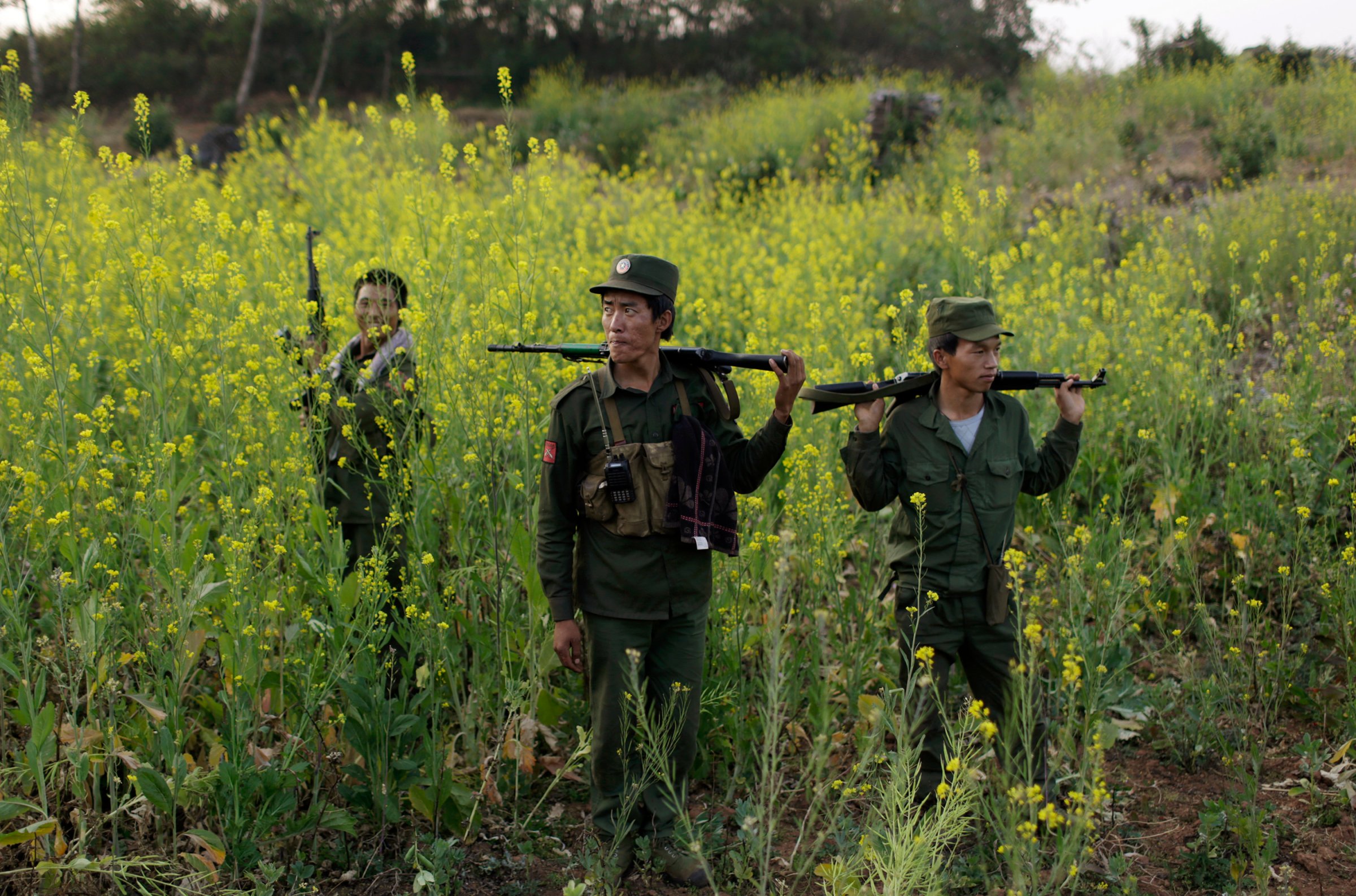
A sugarcane field in southwestern China became an unlikely battle zone on March 13 when five Chinese were killed by a bomb that fell out of the sky. Two days later, Chinese Premier Li Keqiang blamed the deaths on a Burmese military aircraft that had strayed over Chinese soil while skirmishing with the Kokang ethnic insurgency native to the borderlands between China and Burma, which is officially known as Myanmar. “We have the responsibility and the capacity to firmly safeguard the security and stability of the Chinese-Myanmar frontier,” said Li during his annual press conference, while also calling the strike in Yunnan province’s Lincang region “deeply distressing.”
In a statement released to TIME on Monday, the Burmese government insisted it was “maintaining [military] operations within the territory of Myanmar and respecting the territorial integrity and friendly relations between Myanmar and China.” And while expressing “deep sorrow for the death and injuries of Chinese nationals living in border areas,” and noting that a joint Sino-Burmese task force would be investigating the deaths further, the Burmese government also questioned “whether the Kokang insurgent group is involved in this incident to [create] a negative impact on the friendship between Myanmar and China and to create instability along the border area.”
Beijing, which is Burma’s largest investor, is surely not pleased by the latest tensions on its southwestern flank, which is the conduit for the many natural resources — jade, natural gas, timber, to name just three — that flow northward from Burma to a voracious China. Fighting, though, is nothing new along this volatile frontier. For generations, the Burmese military has battled various ethnic rebel groups that crowd the hills rising up toward the Chinese border. Despite promises of an imminent national cease-fire from Burma’s quasi-civilian government, which took over in 2011 from a long-ruling junta, clashes continue.
Recent hostilities involve the Kokang, the Kachin, the Shan and the Ta’ang, among other ethnic groups. The Kokang are ethnically Chinese and have long maintained political ties across the border. Some in the opium-tainted region once aligned themselves with the Kuomintang, the Chinese nationalist government that lost to the Communists during China’s civil war and fled to Taiwan. Other Kokang residents rallied around the communists and, like many other ethnic armies in northern Burma, received financial and tactical support from the Chinese People’s Liberation Army.
These days, Beijing no longer openly backs rebel groups in Burma. Still, the Sino-Burmese boundary, some 2,000 km long, remains porous. When fighting occurs in Burma, ethnic refugees — not to mention their military leaders — escape to China’s Yunnan province, which is home to many of the same minorities. People flows are even more significant in the opposite direction. Tens of thousands of Chinese have crossed into Burma to access the nation’s treasure trove of natural resources. In parts of northern Burma, the Chinese currency is accepted and signs in Mandarin hang from storefronts.
The preponderance of Chinese businessmen in northern Burma has bred some ill feeling among locals, even if the Chinese are among the few investors willing to devote money to such an unstable region. One of Burmese President Thein Sein’s earliest — and most popular — directives was to suspend construction of a controversial dam in northern Kachin state that was being built by a Chinese state-owned firm. (Critics contend that construction is, in fact, ongoing.) Earlier this year, dozens of Chinese loggers were detained by Burmese authorities for working illegally in Kachin.
Chinese have long been quietly — and, on occasion, illegally — working in Burma. Last year, in a virtual no-man’s land between the Burmese army and the Kachin Independence Army (KIA), which controls territory on the border with China, a crew of Chinese mine workers operated heavy machinery, tearing up the earth in search of gold. The Chinese foreman of the mine, which is being run by a state-owned enterprise from the Yunnan county of Tengchong, said there was no need for passports or visas or any such conventions of international travel to work the land in Nam San Yang. “We’re only a little bit over the border,” he said, as his men gathered for lunch in a bamboo shack overlooking a patch of earth that was the scene of fierce fighting between the Burmese army and the KIA. Today, the area is nominally controlled by the rebels, while the Burmese front-line positions are staked on a nearby hill. “Myanmar people, Kachin people, who knows, who cares about all those politics,” said a mine worker surnamed Chen, who earns $480 a month. “I’m just here to make money to take home to my family.” Such ambitions know no national boundaries.
More Must-Reads From TIME
- The 100 Most Influential People of 2024
- Coco Gauff Is Playing for Herself Now
- Scenes From Pro-Palestinian Encampments Across U.S. Universities
- 6 Compliments That Land Every Time
- If You're Dating Right Now , You're Brave: Column
- The AI That Could Heal a Divided Internet
- Fallout Is a Brilliant Model for the Future of Video Game Adaptations
- Want Weekly Recs on What to Watch, Read, and More? Sign Up for Worth Your Time
Contact us at letters@time.com